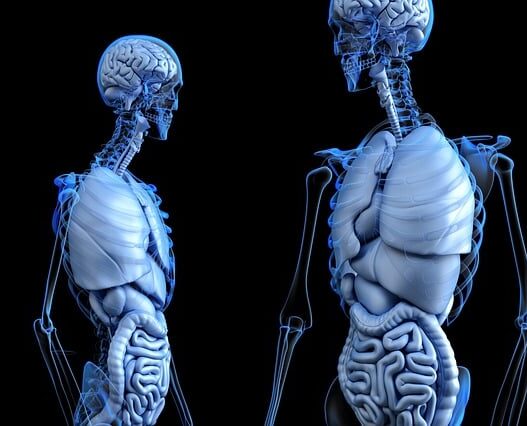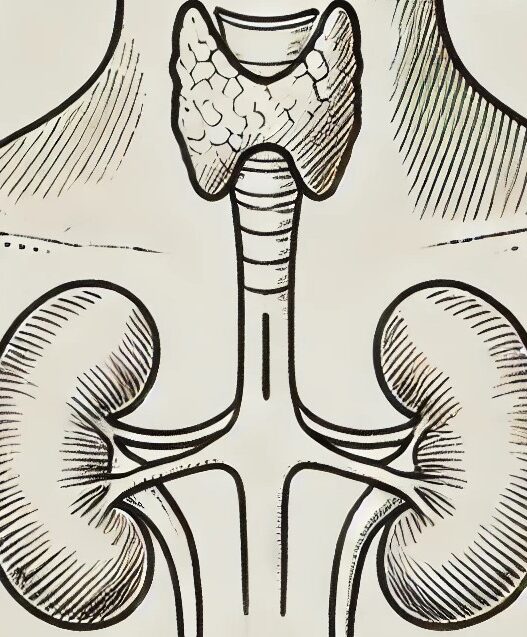Understanding Autoimmune Disease Symptoms
Autoimmune disease symptoms can vary widely, but recognizing the signs early is crucial for effective management and treatment. Autoimmune diseases affect millions of people worldwide and can range from mild to debilitating. These conditions occur when the immune system, which is designed to protect the body from infections and foreign invaders, mistakenly attacks its own cells, tissues, and organs. This can lead to chronic inflammation, pain, and, over time, irreversible tissue damage.
Understanding the common autoimmune disease symptoms can help in early detection and management. Here, we’ll cover some of the most prevalent autoimmune conditions, their hallmark symptoms, and what you should know if you suspect an autoimmune disease.
Common Autoimmune Disease Symptoms

1. Hashimoto’s Thyroiditis
What It Is: Hashimoto’s thyroiditis is an autoimmune condition where the immune system attacks the thyroid gland, impairing its ability to produce enough thyroid hormones.
Hashimoto’s Autoimmune Disease Symptoms:
- Fatigue and sluggishness
- Unexplained weight gain
- Cold intolerance
- Muscle weakness and joint pain
- Hair loss and brittle nails
- Dry skin
- Depression and memory issues
Why It’s Common: Hashimoto’s is the most common cause of hypothyroidism, particularly in women. Early diagnosis is crucial, as untreated Hashimoto’s can lead to further complications, including heart issues and a slower metabolism.
2. Rheumatoid Arthritis (RA)
What It Is: Rheumatoid arthritis is an autoimmune condition that primarily affects the joints. Unlike osteoarthritis, which results from wear and tear, RA is caused by the immune system attacking joint tissues.
Rheumatoid Arthritis Autoimmune Disease Symptoms:
- Swollen, tender, and warm joints
- Stiffness, especially in the morning or after periods of inactivity
- Fatigue, fever, and loss of appetite
- Symmetrical pain (affects both sides of the body, like both wrists or knees)
Why It’s Common: RA is a prevalent form of autoimmune arthritis, particularly among adults over 30. Without treatment, RA can lead to joint deformity and disability.
3. Systemic Lupus Erythematosus (SLE)
What It Is: Commonly referred to as lupus, this autoimmune disease affects multiple organs, including the skin, joints, kidneys, and brain. Lupus is complex and symptoms can vary widely among individuals.
Systemic Lupus Erythematosus Autoimmune Disease Symptoms:
- Fatigue and fever
- Joint pain, swelling, and stiffness
- Skin rashes, particularly the “butterfly” rash across the cheeks and nose
- Hair loss
- Chest pain and difficulty breathing (if it affects the lungs)
- Sensitivity to sunlight
- Kidney problems
Why It’s Common: Lupus is more common in women and in people of African, Hispanic, and Asian descent. The condition can be challenging to diagnose because it mimics many other diseases, requiring a combination of blood tests, physical exams, and patient history.
4. Type 1 Diabetes
What It Is: In type 1 diabetes, the immune system destroys the insulin-producing cells in the pancreas, affecting blood sugar regulation.
Type 1 Diabetes Autoimmune Disease Symptoms:
- Frequent urination
- Extreme thirst and hunger
- Unintended weight loss
- Fatigue
- Blurred vision
Why It’s Common: Type 1 diabetes is often diagnosed in children and young adults, although it can develop at any age. With the right management, people with type 1 diabetes can lead healthy lives, though the disease requires lifelong insulin therapy.
5. Multiple Sclerosis (MS)
What It Is: Multiple sclerosis is an autoimmune disease that affects the central nervous system, damaging the protective covering of nerves (myelin sheath), which disrupts the flow of information between the brain and body.
Multiple Sclerosis Autoimmune Disease Symptoms:
- Numbness or weakness in one or more limbs
- Electric-shock sensations with certain neck movements
- Tremor, lack of coordination, or unsteady gait
- Vision problems, including double vision or partial vision loss
- Slurred speech and fatigue
Why It’s Common: MS is more prevalent in women and people of European descent, particularly those living in northern climates. Symptoms can vary widely, with some individuals experiencing mild issues and others facing more severe, life-altering challenges.
6. Celiac Disease
What It Is: Celiac disease is an autoimmune reaction to gluten, a protein found in wheat, barley, and rye. When someone with celiac disease consumes gluten, it damages the small intestine, leading to nutrient malabsorption.
Celiac Disease Autoimmune Disease Symptoms:
- Digestive issues (bloating, diarrhea, gas, constipation)
- Fatigue and anemia
- Weight loss and growth problems (in children)
- Itchy, blistering skin rash (dermatitis herpetiformis)
- Joint pain and headaches
Why It’s Common: Celiac disease affects around 1% of the population globally, though it is often undiagnosed or misdiagnosed. Adopting a strict gluten-free diet is essential for managing the condition and preventing further intestinal damage.
7. Psoriasis and Psoriatic Arthritis
What It Is: Psoriasis is an autoimmune skin condition that speeds up the life cycle of skin cells, leading to the formation of red, scaly patches. In some cases, it also causes joint inflammation, a condition known as psoriatic arthritis.
Psoriasis and Psoriatic Arthritis Autoimmune Disease Symptoms:
- Red patches of skin covered with silvery scales (most common on elbows, knees, and scalp)
- Dry, cracked skin that may bleed
- Itching and burning
- Swollen and painful joints (in psoriatic arthritis)
Why It’s Common: Psoriasis affects around 2-3% of the global population and is associated with other conditions like diabetes, heart disease, and depression. Genetics and environmental factors play a role in its development.
8. Inflammatory Bowel Disease (IBD): Crohn’s Disease and Ulcerative Colitis
What It Is: IBD encompasses conditions that cause chronic inflammation of the digestive tract, primarily Crohn’s disease and ulcerative colitis.
Inflammatory Bowel Disease (IBD): Crohn’s Disease and Ulcerative Colitis Autoimmune Disease Symptoms:
- Persistent diarrhea
- Abdominal pain and cramping
- Blood in stool
- Reduced appetite and weight loss
- Fatigue and fever
Why It’s Common: IBD is becoming more prevalent, especially in developed countries. Diet, stress, genetics, and environmental factors contribute to its development. IBD often requires a combination of dietary changes, medication, and sometimes surgery to manage symptoms.
9. Autoimmune Gastritis
What It Is: Autoimmune gastritis is a condition in which the immune system attacks the stomach lining, particularly the cells that produce stomach acid and intrinsic factor. This leads to inflammation, nutrient malabsorption, and, over time, can cause stomach atrophy and vitamin B12 deficiency.
Autoimmune Gastritis Autoimmune Disease Symptoms:
- Bloating, gas, and abdominal pain
- Nausea or vomiting
- Feeling full quickly after eating
- Fatigue due to anemia, often from B12 deficiency
- Unintended weight loss
- Brittle nails and hair loss (from nutrient deficiencies)
Why It’s Common: Autoimmune gastritis often goes undiagnosed, as symptoms can be mild or attributed to other digestive issues. If left untreated, it may lead to conditions such as pernicious anemia. Diagnosis typically involves blood tests, endoscopy, and sometimes gastric biopsy, and treatment often includes B12 supplementation and dietary adjustments.
When to Seek Help
If you recognize any of these symptoms in yourself or a loved one, it may be time to consult a healthcare professional. Autoimmune diseases can be challenging to diagnose, as symptoms often overlap with other conditions. Seeking help early can provide clarity and open the door to effective management strategies, whether through conventional medicine, functional medicine, or a combination of both.
Conclusion
Autoimmune diseases vary widely, but they share one thing in common: the immune system mistakenly targets the body’s own tissues, leading to chronic symptoms and potential damage. Understanding the symptoms of common autoimmune conditions can help guide you or a loved one toward early diagnosis, effective management, and a better quality of life.
Knowledge is a powerful tool in the journey of managing autoimmune diseases. With the right support and strategies, those affected can take control of their health and work toward a balanced and fulfilling life.
If you’re experiencing symptoms that could point to an autoimmune condition, it’s important to get accurate information and early guidance. For a comprehensive list of symptoms and more details on autoimmune diseases, you can explore resources like MedlinePlus’ Autoimmune Diseases Symptoms page, which offers a wealth of information on a wide range of autoimmune conditions.




















